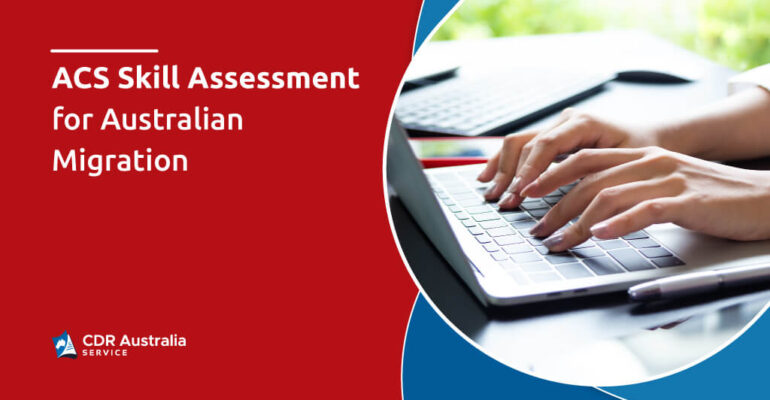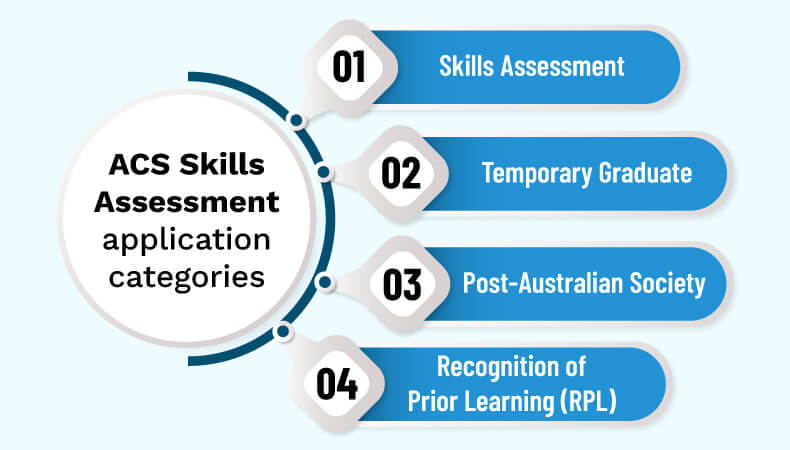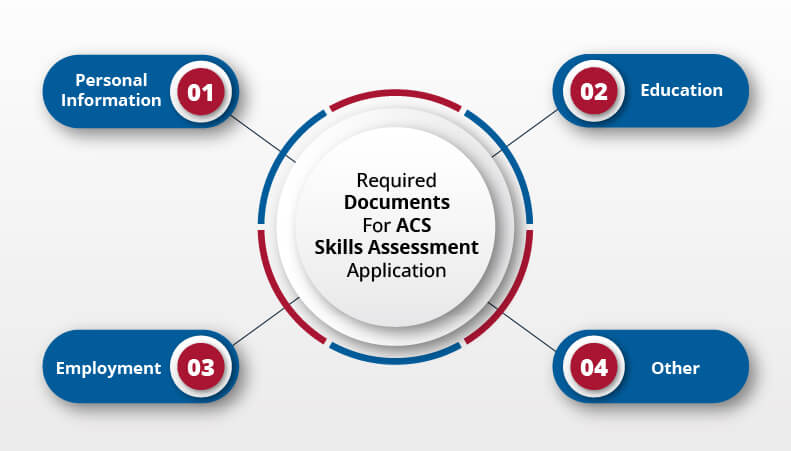ACS Skill Assessment for Australian Migration

ACS Skill Assessment for Australian Migration
ACS is the acronym for Australian Computer Society, which is the approved assessing body for skill evaluations for skilled migration. Australian Computer Society is a leading authority on examining the competency and expertise of ICT professionals who seek to start careers in the ICT sector in Australia. The basic aim and goals of the ACS are to make sure that prospective immigrants with ICT (Information Communication Technology) qualifications will fulfill the minimum standards to initiate a professional career in Australia. It analyzes the various professional occupations for the expertise evaluation goals.
ACS Skills Assessment – what does it mean?
In layman’s words, ACS skills assessment involves that the Australian Computer Society will evaluate and verify that applicant’s academic credentials, professional experience, and roles and responsibilities that you want to claim as an IT professional for immigration purposes meet the Australian government’s standards for the related shortlisted professions on the linked skilled occupation list.
The ACS provides opportunities for the applicants to demonstrate the level of skills and competencies necessary for skilled migration in Australia, whether they hold an ICT background degree and tertiary or other qualifications, even do not hold an academic certification but have professional skills and knowledge in the ICT area. As part of the following migration process, they will need to prepare an ACS RPL report and deliver it to the Australian Computer Society(ACS).
The result of the applicant’s application will show them whether or not their skills and qualifications meet the requirements for ICT experts.
ACS Skills assessment application categories

There are four types of applications that ACS supports. The skill assessment application procedure is mandatory in the majority of circumstances for individuals intending to immigrate to Australia, they are:
- Skills Assessment
- Temporary Graduate
- Post-Australian Society
- Recognition of Prior Learning(RPL)
Skills Assessment
It is a general skills assessment application for assessing applicants’ tertiary ICT skills and professional expertise in the sector of ICT. If you have an ICT education from another country and professional experience in the field, but no official year degree from an Australian accord), in this scenario applicants have the great chance to assess their skills and knowledge through this application.
Temporary Graduate-485
It is just only a skill assessment of educational qualification, for professionals who have obtained an Australian bachelor’s level or above and intend to apply for a 485 visa. This application is only for making an application for a subclass 485 visa.
Post-Australian Society
This is a sort of skills evaluation application that requires Australian qualifications and professional skills, as well as a professional year curriculum.
Recognition of Prior Learning
If the applicants do not hold ICT-relevant degrees but have professional expertise in the ICT field, then they can evaluate their competencies with the help of the RPL skill assessment application process.
Qualification criteria for ACS skill assessment applicants
The ACS skills evaluation approach incorporates verifying your credentials, job, and work experience to the ANZSCO standards for the occupation you’ve chosen. Qualification analysis consists of assessing the degree of equivalence between your qualification and the Australian Qualifications Framework (AQF) and identifying how your qualification applies to your chosen profession. Employment assessment involves local and foreign professionalism to assess the reliance of the applicant’s professional experience with the standard of the ANZSCO that has been selected.
According to the ACS, the following table summarizes the minimum academic degree and professional experience required for ICT applicability.
How to apply ACS skill assessment application?
If you are looking for an Australian migration visa, you must follow the ACS criteria to the letter. To do so, the applicants must first meet all of the visa’s requirements and study the ANZSCO codebook to see which option is best for them. ACS will allow for skill evaluation even if the applicants do not have an inadequate qualification or an ICT background qualification. So, here are the steps by steps processes to apply for the skill assessment application:
- Be aware of the standard of the concerned Australian official body
- Choose appropriate ANZSCO occupation
- Determine required documents
- Submit the online application form
Step 1: Be aware of the standard of the concerned official body
It is obvious that the applicants must satisfy the rules and regulations governed by the official body before applying for the skill assessment. The official bodies usually change and remodify their laws and regulations relevant to immigration and border issues. Therefore, the applicants must be up to date and familiar with all instructions and laws before applying for skill assessment.
Step 2: Choose appropriate ANZSCO occupation
The other step is to see if your ICT occupation is listed on one of the “Skills Occupation lists” for the Visa type you’re interested in. You must evaluate your relevant occupation from the list of ICT professional professions and ensure that you fulfill the chosen occupation’s complicated criteria in accordance with ACS regulations and recommendations.
Step 3: Determine required documents

As proof that the applicants’ information is accurate, various documents are required for the preparation of ACS RPL reports and for skill assessment. The applicants must mandatorily provide the essential documents for the skills assessment application that is required by the ACS, for this process ACS provided clear guidelines and instructions on the MSA booklet. The crucial documents which need to submit for the ACS skill process are as follows:
Personal Information:
- Documents of identification or passport
- Curriculum Vitae(CV)/Resume
- Evidence of name change(if applicable)
Education:
- Academic qualifications and transcript documents
- Achievement certificates
- Score and grades with specified subject name
Employment:
- Employer’s reference letter
- Proof of payment such as payslips, insurance, etc.
Other:
- Migration authorization form, if applicable
- ACS professional year certification
All the mentioned documents are required for the completion of the ACS skill assessment process. We recommend CDRWritersAustralia for comprehensive support and profile review in order to get favorable results.
Step 4: Submit the online application form
This is the last process for skill assessment application, where the applicants need to fill the all the information and evidence as per the ACS requirements. The application form can be found on the official website of ACS.
Processing duration and Fees
It typically requires approximately 8-10 weeks to perform the skills assessment process. But, if ACS demands extra credentials, the processing period may be longer than usual.
[table “8” not found /]
In the above fee, only the application fee for ACS is included.
Why do we recommend our services?
Have trouble preparing your professional RPL report and want to hire an expert for assistance? With CDRAustraliaService, you will get experienced and qualified writers who specialize in your field of occupation well versed in the ACS guidelines.
We assist you in preparing plagiarism-free, original, and quality professional reports to obtain a positive result from ACS. Our experts provide 100% ACS-approved RPL report samples, RPL report writing, review, and many other quality services at a reasonable cost.



 Talk With Us
Talk With Us